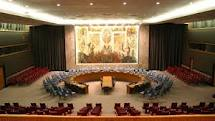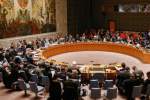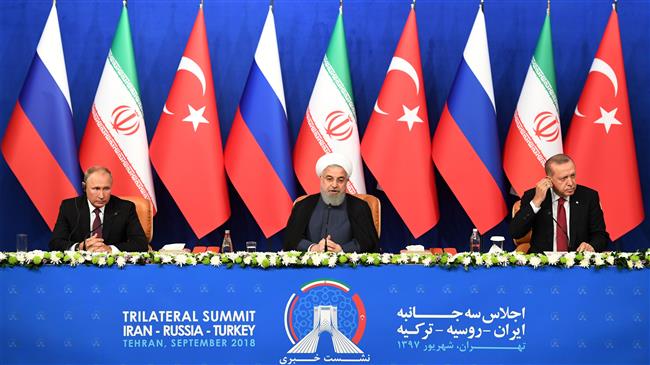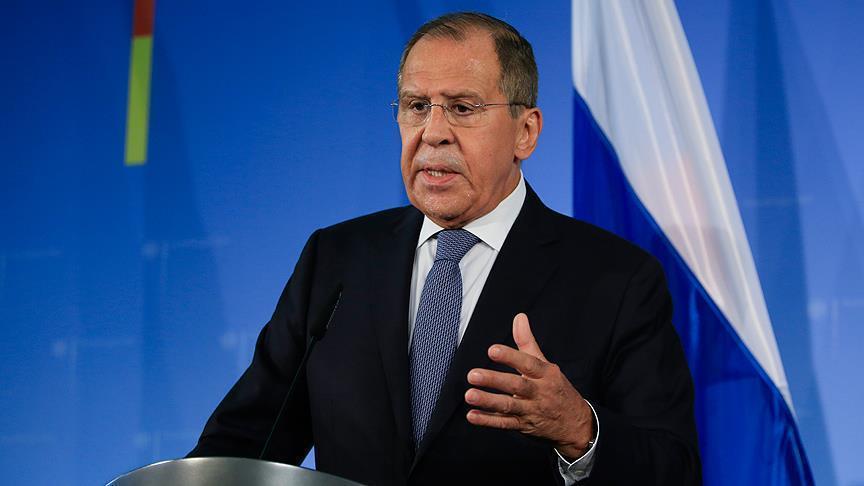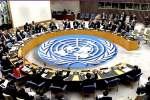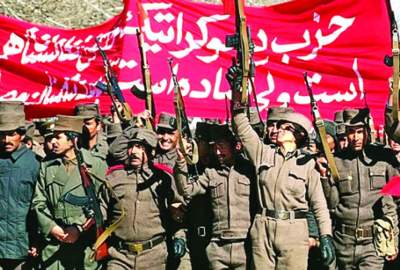The UN Security Council reached a tentative agreement Friday night on a resolution that would expand the number of UN cease-fire observers in Syria from 30 to 300 and let Secretary-General Ban Ki-moon decide on their deployment based on conditions.
Publish dateSaturday 21 April 2012 - 11:03
Story Code : 40354
Over Peace Plan:
UN council reaches tentative agreement on Syria
The final text calls on the Syrian government and the opposition to immediately halt all violence and urgently implement the six-point peace plan drafted by international envoy Kofi Annan.
France’s UN Ambassador Gerard Araud said the text, negotiated over many hours, would be sent to capitals overnight for consideration and the council would meet at 11 a.m. EDT Saturday for a vote.
Russia’s UN Ambassador Vitaly Churkin said he hoped there would be a unanimous vote. But US Ambassador Susan Rice, the current council president, said there is a possibility that not all 15 council members would agree to the text or would have instructions from their government.
The final draft merged two rival texts proposed by Russia, Syria’s most important ally, and European Council members, and there were compromises on both sides.
The Europeans wanted to include a threat of nonmilitary sanctions against Syria if it fails to withdraw all its troops and heavy equipment from cities and towns as it agreed to do, but Russia and China vehemently oppose sanctions against Assad’s government and that provision was eliminated.
Instead, the final draft uses language from the resolution adopted last Saturday authorising deployment of the 30-strong advance team of observers.
The final draft would establish a United Nations Supervision Mission in Syria, to be known as UNSMIS, ”comprising an initial deployment of up to 300 unarmed military observers as well as an appropriate civilian component” for an initial period of 90 days.
The Russian text had called for a limited civilian component, while the Europeans wanted to spell out the skills required of the civilians, including political, human rights, civil affairs and public security.
The key difference in the original texts was whether there should be any conditions for deployment of the expanded force.
The European text said before the new observers are deployed the secretary-general should determine ”to his satisfaction” that Syria has implemented its pledge to send troops and heavy weapons back to barracks. The Russian draft had no conditions.
The compromise language in the final text says the expanded mission ”shall be deployed expeditiously subject to assessment by the secretary-general of relevant developments on the ground, including the consolidation of the cessation of violence.”
France’s Araud said the Security Council wants to send the observers as quickly as possible but ”at the same time, we have to take into account the danger for the observers — so that’s the reason why the secretary-general will have to assess the situation on the ground.”
”It’s a new type of mission,” Araud explained to reporters. ”It’s a first time that the UN is sending in a war zone observers, because there is still fighting…there is still violence.”
He said it’s important to have civilian observers as well who can see, for example, what’s happening with the detainees. He said the size and skills of the civilian contingent is always decided by the secretary-general.
Araud noted that when the Security Council authorises a new mission, it usually calls for reports every 30 days.
”This time we are going to ask for reporting every 15 days so that we can react if things are going bad,” Araud said. ”It’s not only the political question. We are also in charge of the lives of our observers.”
Russia’s Churkin said he hoped approval of the expanded observer force will send ”a strong and good political signal” to the Syrian government and the opposition.
”And we hope the people who have been courageous enough to go there with the advanced party will know that they’re not out there in limbo — that more people will come and the (UN) Secretariat and the Security Council is taking this exercise very seriously,” he said.
Seven of the advance observers are already on the ground, another two will arrive Monday, and the UN hopes to have all 30 in Syria next week, Annan’s spokesman Ahmad Fawzi told The Associated Press in Geneva.
The preliminary agreement between Syria and the United Nations on the deployment of UN observers says they will have freedom to go anywhere in the country by foot or by car, take pictures, and use technical equipment to monitor compliance with the cease-fire engineered by Annan.
The observers, who report to Annan daily, will have freedom to install temporary observation posts in cities and towns, to monitor military convoys approaching population centers, to investigate any potential violation, and to access detention centers and medical centres in coordination with the International Committee of the Red Cross and Syrian authorities, the agreement says.
France’s UN Ambassador Gerard Araud said the text, negotiated over many hours, would be sent to capitals overnight for consideration and the council would meet at 11 a.m. EDT Saturday for a vote.
Russia’s UN Ambassador Vitaly Churkin said he hoped there would be a unanimous vote. But US Ambassador Susan Rice, the current council president, said there is a possibility that not all 15 council members would agree to the text or would have instructions from their government.
The final draft merged two rival texts proposed by Russia, Syria’s most important ally, and European Council members, and there were compromises on both sides.
The Europeans wanted to include a threat of nonmilitary sanctions against Syria if it fails to withdraw all its troops and heavy equipment from cities and towns as it agreed to do, but Russia and China vehemently oppose sanctions against Assad’s government and that provision was eliminated.
Instead, the final draft uses language from the resolution adopted last Saturday authorising deployment of the 30-strong advance team of observers.
The final draft would establish a United Nations Supervision Mission in Syria, to be known as UNSMIS, ”comprising an initial deployment of up to 300 unarmed military observers as well as an appropriate civilian component” for an initial period of 90 days.
The Russian text had called for a limited civilian component, while the Europeans wanted to spell out the skills required of the civilians, including political, human rights, civil affairs and public security.
The key difference in the original texts was whether there should be any conditions for deployment of the expanded force.
The European text said before the new observers are deployed the secretary-general should determine ”to his satisfaction” that Syria has implemented its pledge to send troops and heavy weapons back to barracks. The Russian draft had no conditions.
The compromise language in the final text says the expanded mission ”shall be deployed expeditiously subject to assessment by the secretary-general of relevant developments on the ground, including the consolidation of the cessation of violence.”
France’s Araud said the Security Council wants to send the observers as quickly as possible but ”at the same time, we have to take into account the danger for the observers — so that’s the reason why the secretary-general will have to assess the situation on the ground.”
”It’s a new type of mission,” Araud explained to reporters. ”It’s a first time that the UN is sending in a war zone observers, because there is still fighting…there is still violence.”
He said it’s important to have civilian observers as well who can see, for example, what’s happening with the detainees. He said the size and skills of the civilian contingent is always decided by the secretary-general.
Araud noted that when the Security Council authorises a new mission, it usually calls for reports every 30 days.
”This time we are going to ask for reporting every 15 days so that we can react if things are going bad,” Araud said. ”It’s not only the political question. We are also in charge of the lives of our observers.”
Russia’s Churkin said he hoped approval of the expanded observer force will send ”a strong and good political signal” to the Syrian government and the opposition.
”And we hope the people who have been courageous enough to go there with the advanced party will know that they’re not out there in limbo — that more people will come and the (UN) Secretariat and the Security Council is taking this exercise very seriously,” he said.
Seven of the advance observers are already on the ground, another two will arrive Monday, and the UN hopes to have all 30 in Syria next week, Annan’s spokesman Ahmad Fawzi told The Associated Press in Geneva.
The preliminary agreement between Syria and the United Nations on the deployment of UN observers says they will have freedom to go anywhere in the country by foot or by car, take pictures, and use technical equipment to monitor compliance with the cease-fire engineered by Annan.
The observers, who report to Annan daily, will have freedom to install temporary observation posts in cities and towns, to monitor military convoys approaching population centers, to investigate any potential violation, and to access detention centers and medical centres in coordination with the International Committee of the Red Cross and Syrian authorities, the agreement says.
Source : Afghan Voice Agency (AVA), International Service
avapress.com/vdchkxnk.23nvmd10t2.html
Top hits
3
